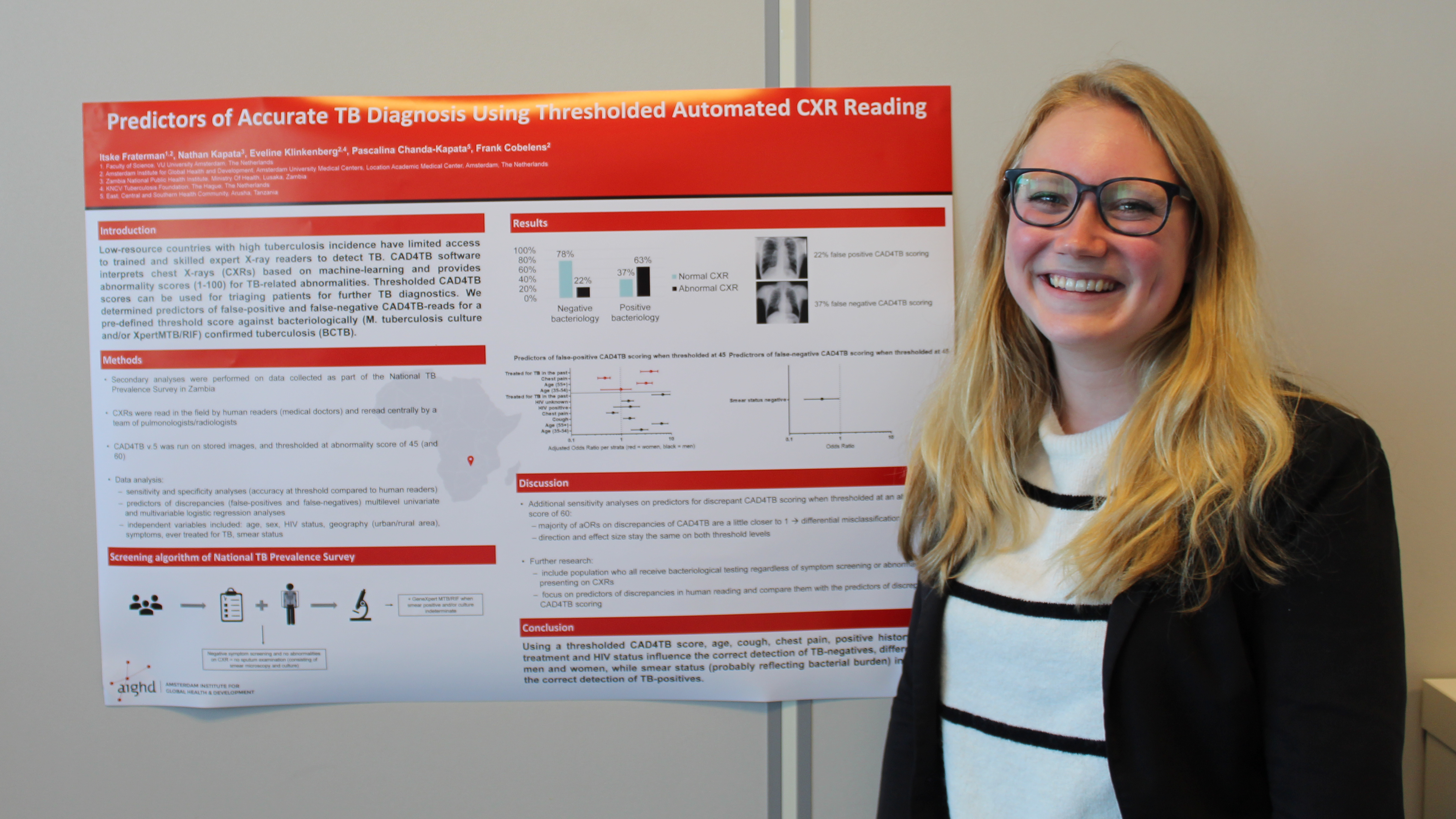
02 Oct Annual global health meeting explores provocative ideas, inspires future research
When it comes to addressing health concerns, global collective action has never been more important than it is right now. That’s the key message from plenary speaker Prof. Mike Merson at the Amsterdam Public Health Research Institute (APH) annual global health meeting. The event took place September 27 and was attended by more than 50 students, researchers and academics.
Prof. Merson, AIGHD Advisory Council Member and Duke University Professor, spoke during his keynote speech about the history of HIV, the ongoing epidemic, and reviewed the current response.
He also highlighted the current global push for the UN sustainable development goals and universal health coverage. Merson said this push puts the much-needed efforts to control major infectious diseases, such as HIV/AIDS, tuberculosis and malaria, at risk. He was specifically critical about the assumption that low-income countries would have the domestic funding necessary to control these major infectious diseases.
For the audience, his provocative ideas resonated.
“His talk was really interesting because he looks at the HIV epidemic from a different perspective and provided information on interesting aspects, for example the activism,” said Itske Fraterman, one of several AIGHD team members who attended the meeting. “He pointed out how we can potentially apply the strategies he presented to other diseases.”
The APH Research Institute brings together researchers, medical professionals and academics from the Vrije University, the University of Amsterdam and the Amsterdam UMC under eight programs, including global health. Their mission is to conduct high quality research to improve citizen health, reduce health inequalities, transform healthcare, and empower citizens. The Amsterdam UMC Department of Global Health is one of the founding partners of AIGHD.
“The meeting shows the breadth of the research that’s currently being done in various areas of global health in the Amsterdam UMC. A perfect example of this is the PhD presentations which were on very diverse topics including health financing, blood lipid levels in migrants and positive deviants when it came to how stigma is addressed, all of which fall within the global health theme,” said Prof. Frank Cobelens, AIGHD Executive Board Chair and co-director of the global health program, along with Prof. Jacqueline Broerse.
“It’s also a great, interactive forum for PhD and Master’s students to get acquainted with one another’s work and learn more about other research happening in this field.”
The event also included a poster parade, three presentations from selected PhD students and a pressure cooker session where three senior researchers presented project ideas to the group in a 5-5-5-5 format.
The first five minutes were a pitch of the project followed by five minutes of critical feedback from the audience about the project and why it may not be a success. The audience then spent five minutes providing positive comments about how the project could lead to success and finally, the presenter summarized the audience comments and addressed key points brought forward in the discussion.
During the poster parade, AIGHD team members presented their work, including Itske who spoke about her recently-completed Master’s thesis project on CAD4TB, a computer software program that analyzes chest X-rays to detect potential TB infection in individuals.
“It was very helpful to network, especially with PhD students because I’d like to do my PhD at some point in the future,” she said. “There were a lot of people interested in my poster and I got some tips from colleagues for how to improve it for future events and ideas about how to go further with my research in terms of analysis.”
For more information on the APH research institute, visit their website.
